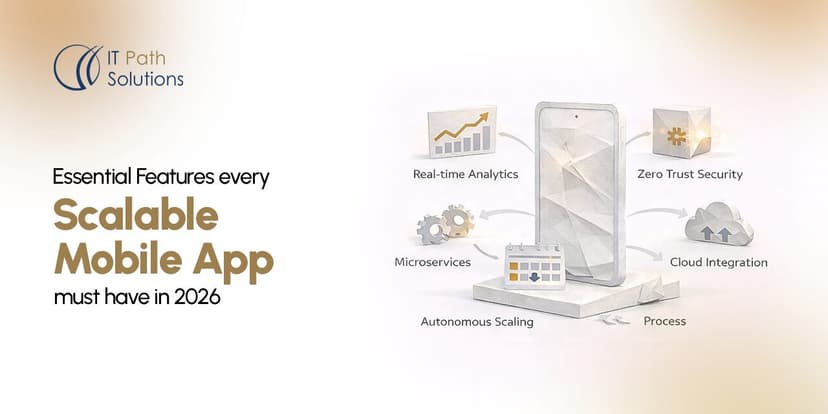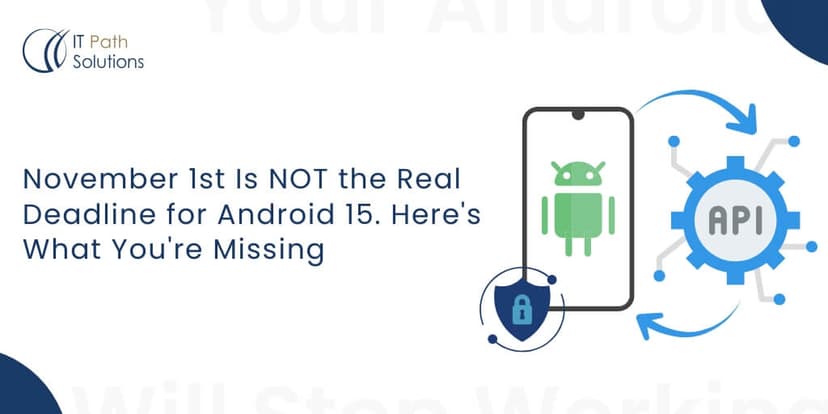Single Codebase App Development Trends in 2023
Keyur Patel
September 12, 2025
7 min
Introduction
“Single codebase app development” refers to the process of using a single codebase to create an application that can run on multiple platforms, such as iOS, Android, and the web. This approach allows developers to write the code once and then use that same codebase to build the app for multiple platforms, rather than having to write separate code for each platform.
One of the main benefits of using a single codebase for app development is that it saves time and resources. With a single codebase, developers can write the code once and then use that same code for multiple platforms, reducing the amount of time and effort required to build an app for multiple platforms. Additionally, single codebase app development makes it easier to maintain and update the app, as there is only one codebase to work with, and changes made to the codebase will automatically be reflected across all platforms.
Single codebase app development is becoming an increasingly popular trend in the industry, and this trend is likely to continue in the future as more companies and developers recognize the benefits of this approach. There are a number of frameworks and technologies that are making it easier for hybrid developers to create apps with a single codebase, such as React Native, Flutter, and Xamarin, and Progressive Web Apps (PWAs) are also gaining popularity as a way to build apps that work on multiple platforms. Additionally, Cloud-based app development is also growing trend where developers take advantage of cloud services such as AWS and Azure to scale and deploy their apps.
Single Codebase App Development Trends in 2023
Cross-platform App Development Frameworks
Cross-platform app development frameworks are a popular solution for creating apps with a single codebase. These frameworks allow developers to write the code once and then use that same code to build the app for multiple platforms, such as iOS, Android, and the web.
React Native, Flutter, and Xamarin are some of the most popular cross-platform app development frameworks. React Native, developed by Facebook, uses JavaScript and is based on React.js, a popular JavaScript library for building user interfaces. Flutter, developed by Google, uses the Dart programming language and features a reactive programming model. Xamarin, developed by Microsoft, uses C# and allows developers to share code across multiple platforms using the .NET framework.
Each of these frameworks has its own set of pros and cons. For example, React Native is widely adopted and has a large community of developers, while Flutter has a fast development cycle and a smooth and responsive user interface. Xamarin allows developers to share a significant amount of code across multiple platforms and has strong support for native features and performance.
Overall, the popularity of these frameworks is increasing as more developers are recognizing the benefits of cross-platform app development, such as reduced development time and cost. As a result, the use of cross-platform app development frameworks will likely continue to grow in the future.
Progressive Web Apps (PWAs)
Progressive Web Apps (PWAs) are web applications that use modern web technologies to provide a native app-like experience on the web. PWAs work by leveraging features such as service workers, which allow for offline functionality, and web app manifests, which allow for the app to be installed on the home screen of a user’s device.
One of the main benefits of PWAs is their offline functionality. This allows users to access the app even when they don’t have an internet connection, providing a seamless user experience. PWAs also often have improved performance on low-end devices, as they are designed to be lightweight and fast-loading. Additionally, PWAs are easy to discover, install and re-engage with.
The growing adoption of PWAs is driven by their increasing capabilities and the benefits they offer. PWAs are also seen as a way for businesses to reach more users as they don’t need to be downloaded from an app store and don’t require users to have a specific operating system. PWAs can be accessed by any device with a modern web browser.
More and more companies and developers are recognizing the potential of PWAs and are starting to explore and implement them in their own projects. PWAs are becoming a popular choice for businesses looking to increase engagement and conversions, and it is expected that they will continue to gain popularity in the coming years.
Cloud-Based App Development
Cloud-based app development refers to the use of cloud services, such as Amazon Web Services (AWS) and Microsoft Azure, to build, test, and deploy mobile and web applications.
Cloud-based app development offers several benefits, such as scalability, cost-efficiency, and security. With cloud-based app development, developers can easily scale their applications to handle increasing numbers of users and traffic, without the need for expensive hardware or infrastructure. Additionally, cloud-based app development can reduce costs associated with building and maintaining on-premises infrastructure. Also, cloud providers like AWS and Azure offer security features like encryption, secure access and compliance which helps to keep the app and data more secure.
The use of cloud services for app development and deployment is becoming an increasingly popular trend in the industry. More and more companies and developers are recognizing the benefits of cloud-based app development, such as increased scalability, cost-efficiency, and security, and are starting to explore and implement cloud services in their own projects. It is expected that this trend will continue to grow in the future as cloud providers continue to innovate and offer new services to developers.
The Future of Single Codebase App Development
The future of single codebase app development looks promising, with a number of emerging technologies and trends set to shape the field.
One of the most significant emerging technologies that will have an impact on single codebase app development is 5G. With its faster speeds and lower latency, 5G will enable developers to create more responsive and interactive apps that can handle more data and users. This will make it possible to create more advanced apps with rich multimedia and real-time capabilities, and will also enable new use cases such as AR/VR and IoT.
Another trend that will shape the future of single codebase app development is the continued growth of cross-platform app development. The popularity of frameworks such as React Native, Flutter, and Xamarin will continue to grow, making it easier for developers to create apps that can run on multiple platforms with a single codebase.
Artificial intelligence (AI) and machine learning (ML) are also becoming an increasingly important part of app development. Developers are starting to use AI and ML to create more personalized and engaging apps, as well as to optimize app performance and security.
All these emerging technologies and trends will shape the future of app development, and single codebase app development will play a key role in this future. Single codebase app development will continue to be a cost-effective and efficient way to create apps that can run on multiple platforms, and with the advancements in technology, it will enable developers to create more advanced and engaging apps that can take advantage of emerging technologies such as 5G, AI, and ML.
Conclusion
In conclusion, single codebase app development is a cost-effective and efficient way to create apps that can run on multiple platforms. The use of cross-platform app development frameworks, Progressive Web Apps (PWAs), and cloud-based app development are becoming increasingly popular trends in the industry, and they offer many benefits such as reduced development time and cost, improved performance, and increased scalability. Additionally, emerging technologies such as 5G, AI, and ML are expected to have a significant impact on the future of single codebase app development, enabling developers to create more advanced and engaging apps that can handle more data and users. The future of single codebase app development looks promising, and it will play a key role in shaping the future of app development.

Keyur Patel
Co-Founder
Keyur Patel is the director at IT Path Solutions, where he helps businesses develop scalable applications. With his extensive experience and visionary approach, he leads the team to create futuristic solutions. Keyur Patel has exceptional leadership skills and technical expertise in Node.js, .Net, React.js, AI/ML, and PHP frameworks. His dedication to driving digital transformation makes him an invaluable asset to the company.
Related Blog Posts

Essential Features every Scalable Mobile App must have in 2026
Let’s start with a situation most product leaders recognize. It is early 2026. Your mobile app has finally found traction. Daily active users are climbing. Marketing campaigns are working. Investors are optimistic. Then something breaks. Screens take too long to load. This happens during peak hours. A payment fails silently. A security audit flags basic… Essential Features every Scalable Mobile App must have in 2026

How to choose the right Mobile App Development Partner for your Business Growth
Let’s start with a story that haunts the IT industry. A well-funded logistics company decided they needed a custom mobile app to track their fleet. They did what most companies do: they Googled mobile app development company, sent out a generic Request for Proposal (RFP) to the top five results, and picked the one with… How to choose the right Mobile App Development Partner for your Business Growth

November 1st Is NOT The Real Deadline For Android 15. Here’s What You’re Missing
Imagine waking up one morning and discovering your Android app is invisible to millions of users on the Google Play Store. No installs, no updates, no revenue. Sounds terrifying, right? It is not a science fiction plot; it is the looming reality many businesses and developers could face in November 2025 if they neglect the… November 1st Is NOT The Real Deadline For Android 15. Here’s What You’re Missing
